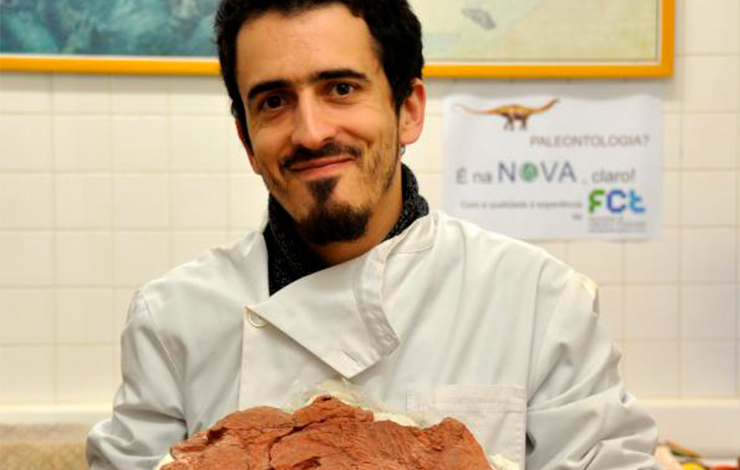19-02-2018

The first fossils in Portugal of placodonts, aquatic reptiles that lived and died about 220 million years ago, were found in Loulé by paleontologists of FCT NOVA. Paleontologists Hugo Campos and Octávio Mateus of FCT NOVA found 2016 "bones of the ribs and carapace" of placodonts, but only now they divulged the discovery through the publication of the study, inserted in the catalog of the exhibition "Loulé: Territories. Memoirs. Identities ", at the National Museum of Archeology.
"The placodonts are a group of reptiles that had not yet been identified in Portugal, but which is already known in other parts of the world," explained Octavio Mateus, who advise Hugo Campos' master's thesis on paleontology on the vertebrates of the Algarve Triassic.
The study "Loulé for more than 220 Million years: the fossil vertebrates of the Triassic Algarve", now published, describes that placodonts lived during the triassic between 250 and 200 million years at sea, in shallow waters, fed on mollusks and possessed bony plates that gave them a turtle-like appearance.A large number of these bony plates, which scientists call 'osteodermes', were found in the municipalities of Loulé and Silves in 2016 and 2017. In the village of Penina, Loulé, is located that is considered the main deposit of the upper triassic of Portugal and one of the most important in vertebrate paleontology of Portugal.